Sungwon Lyu
KLUE: Korean Language Understanding Evaluation
Jun 11, 2021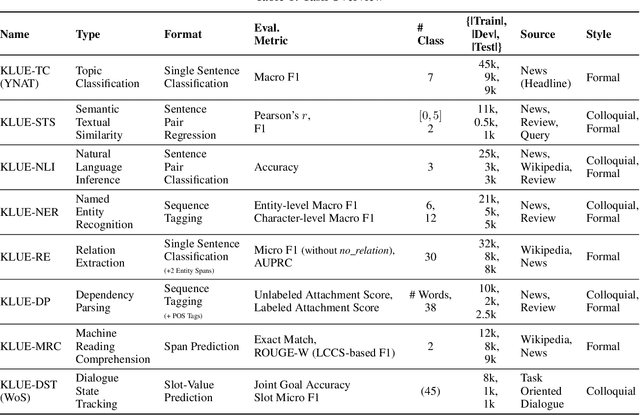

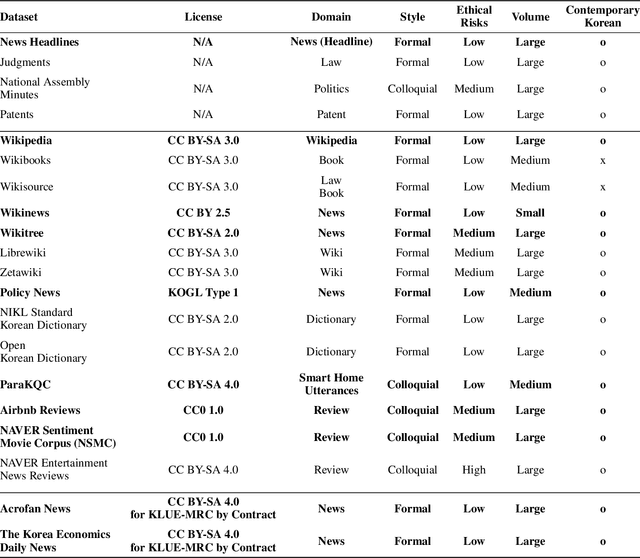
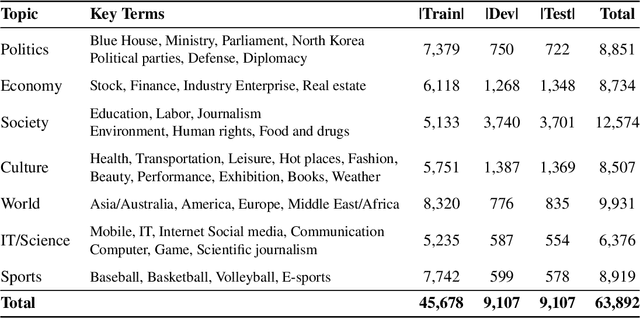
Abstract:We introduce Korean Language Understanding Evaluation (KLUE) benchmark. KLUE is a collection of 8 Korean natural language understanding (NLU) tasks, including Topic Classification, SemanticTextual Similarity, Natural Language Inference, Named Entity Recognition, Relation Extraction, Dependency Parsing, Machine Reading Comprehension, and Dialogue State Tracking. We build all of the tasks from scratch from diverse source corpora while respecting copyrights, to ensure accessibility for anyone without any restrictions. With ethical considerations in mind, we carefully design annotation protocols. Along with the benchmark tasks and data, we provide suitable evaluation metrics and fine-tuning recipes for pretrained language models for each task. We furthermore release the pretrained language models (PLM), KLUE-BERT and KLUE-RoBERTa, to help reproducing baseline models on KLUE and thereby facilitate future research. We make a few interesting observations from the preliminary experiments using the proposed KLUE benchmark suite, already demonstrating the usefulness of this new benchmark suite. First, we find KLUE-RoBERTa-large outperforms other baselines, including multilingual PLMs and existing open-source Korean PLMs. Second, we see minimal degradation in performance even when we replace personally identifiable information from the pretraining corpus, suggesting that privacy and NLU capability are not at odds with each other. Lastly, we find that using BPE tokenization in combination with morpheme-level pre-tokenization is effective in tasks involving morpheme-level tagging, detection and generation. In addition to accelerating Korean NLP research, our comprehensive documentation on creating KLUE will facilitate creating similar resources for other languages in the future. KLUE is available at https://klue-benchmark.com.
Revisiting Modularized Multilingual NMT to Meet Industrial Demands
Oct 19, 2020
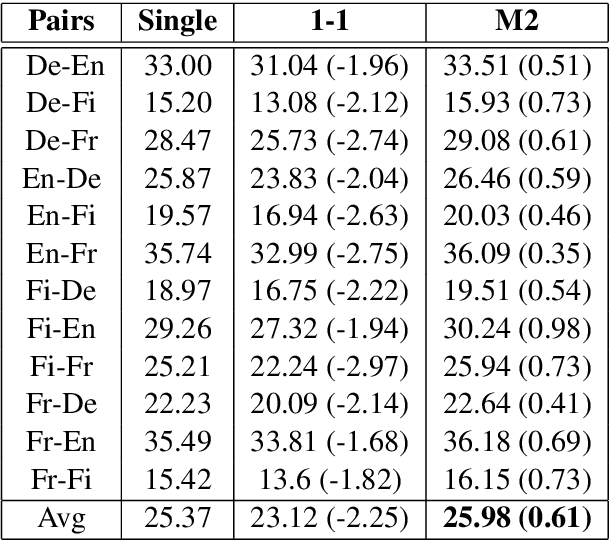

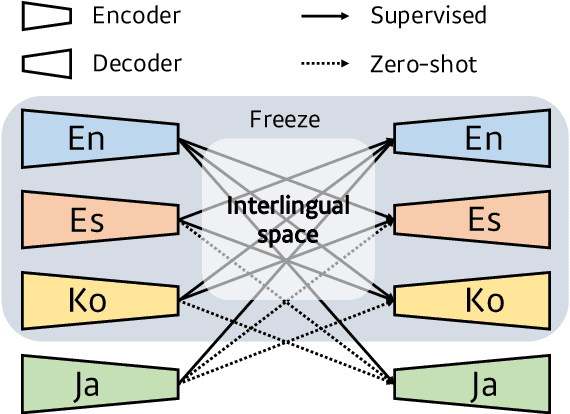
Abstract:The complete sharing of parameters for multilingual translation (1-1) has been the mainstream approach in current research. However, degraded performance due to the capacity bottleneck and low maintainability hinders its extensive adoption in industries. In this study, we revisit the multilingual neural machine translation model that only share modules among the same languages (M2) as a practical alternative to 1-1 to satisfy industrial requirements. Through comprehensive experiments, we identify the benefits of multi-way training and demonstrate that the M2 can enjoy these benefits without suffering from the capacity bottleneck. Furthermore, the interlingual space of the M2 allows convenient modification of the model. By leveraging trained modules, we find that incrementally added modules exhibit better performance than singly trained models. The zero-shot performance of the added modules is even comparable to supervised models. Our findings suggest that the M2 can be a competent candidate for multilingual translation in industries.
SARN: Relational Reasoning through Sequential Attention
Nov 01, 2018
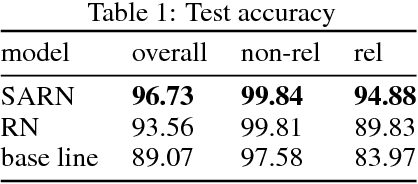
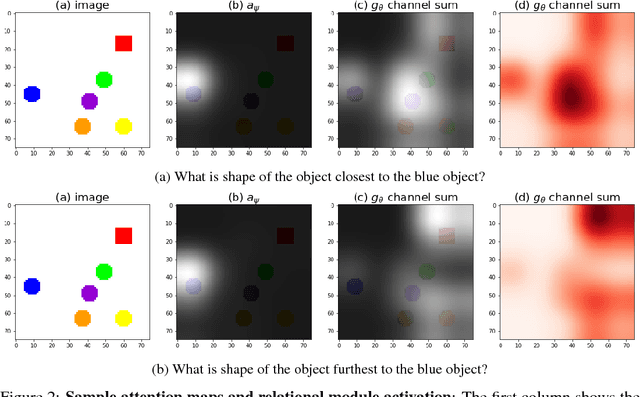

Abstract:This paper proposes an attention module augmented relational network called SARN(Sequential Attention Relational Network) that can carry out relational reasoning by extracting reference objects and making efficient pairing between objects. SARN greatly reduces the computational and memory requirements of the relational network, which computes all object pairs. It also shows high accuracy on the Sort-of-CLEVR dataset compared to other models, especially on relational questions.
 Add to Chrome
Add to Chrome Add to Firefox
Add to Firefox Add to Edge
Add to Edge